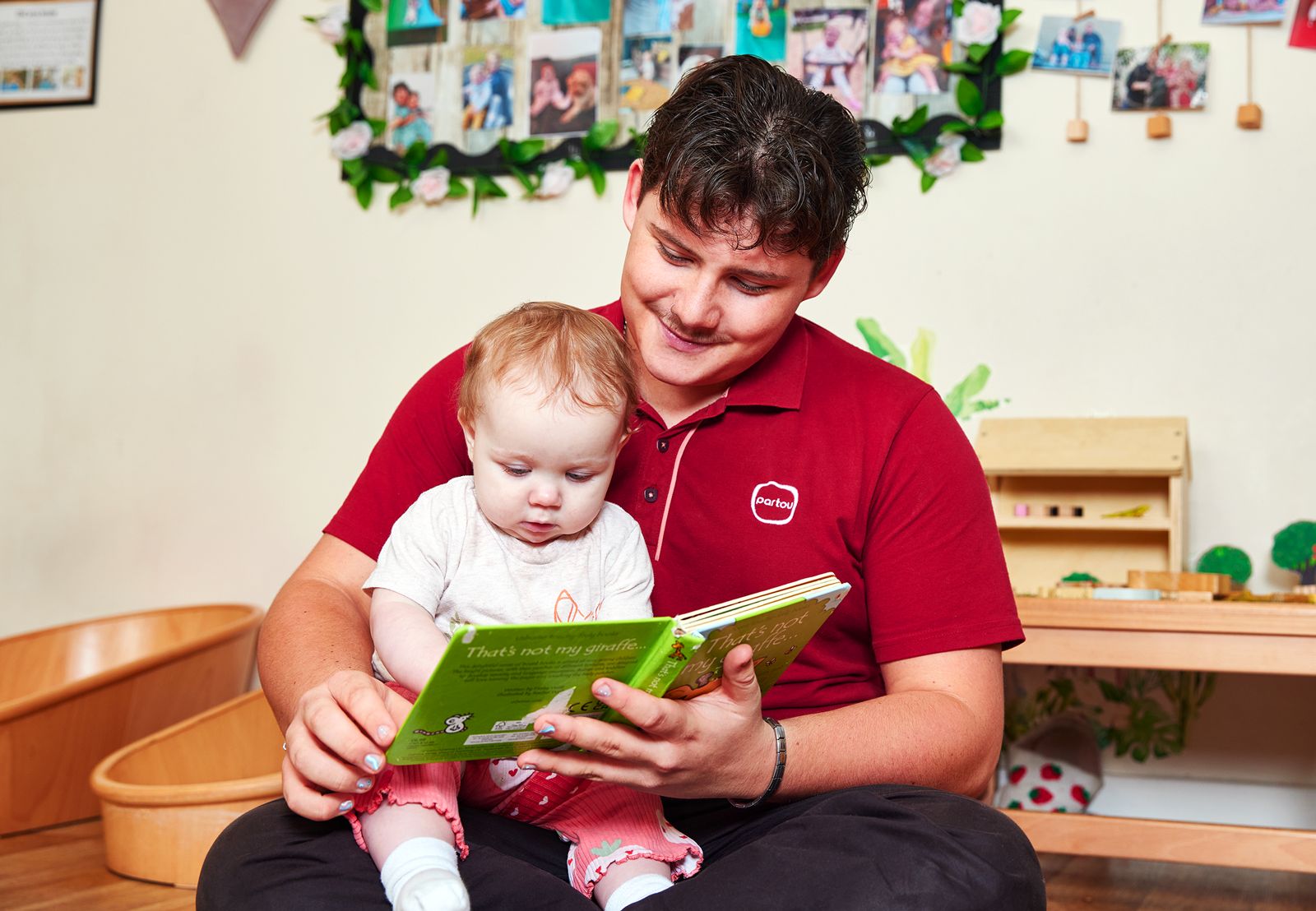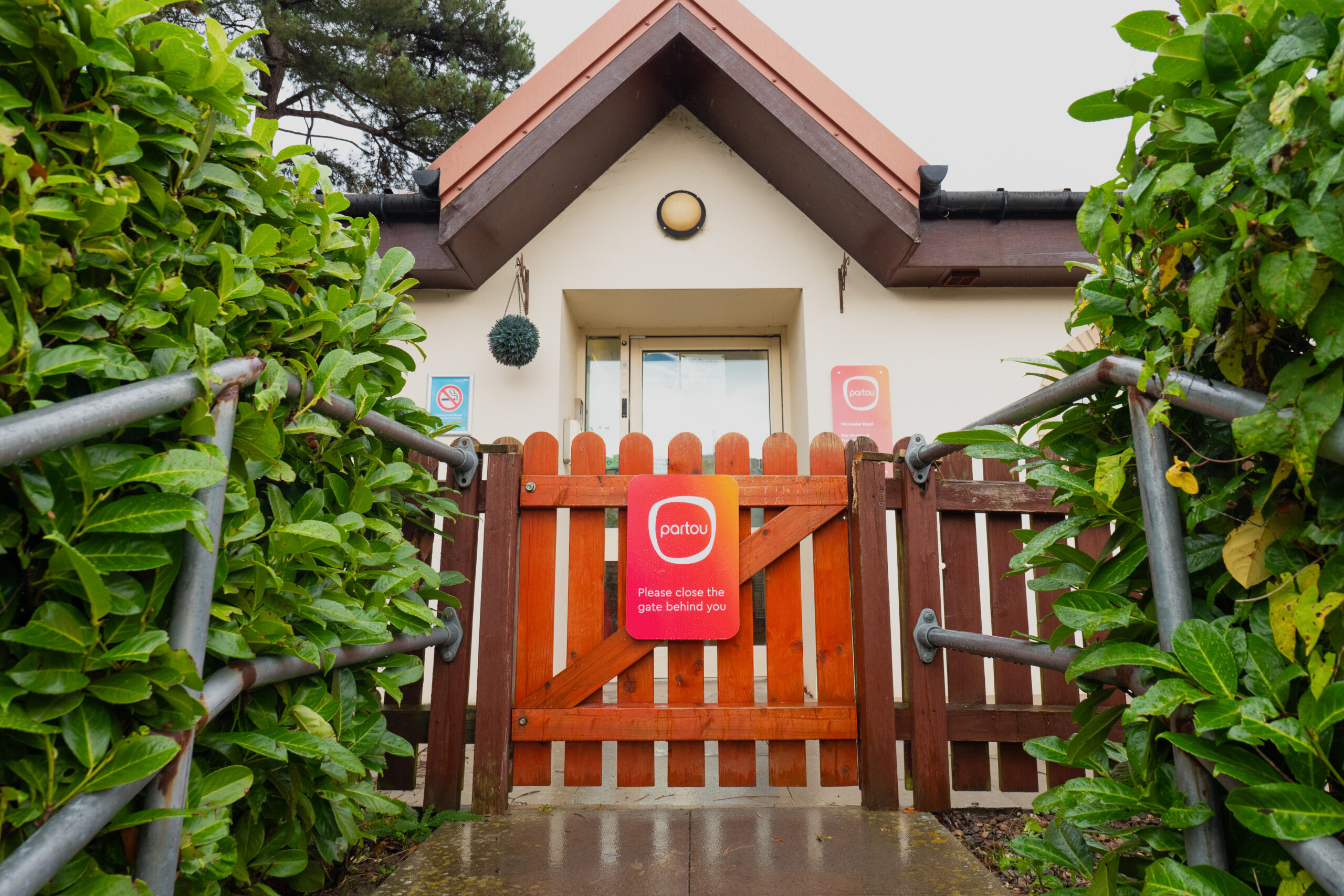
A parent’s guide to stress-free festive eating with children
Take a look at our helpful guide, on keeping food balanced, relaxed and enjoyable for children this Christmas, put together by Children's Food Nutritionist Laura Mathews
Interested in becoming an Early Years Practitioner at Partou?
Find out what the role involves, how to qualify, career path opportunities and more in this blog!

Early Years Practitioners are central to what we do here at Partou. Working on the front line as early years specialists, we’re proud of the amazing job our Early Years Practitioners do every day to nurture and support the babies and young children in their care. Let’s take a look at the roles and responsibilities of an early years practitioner, nursery career progression and childcare job opportunities.
An Early Years Practitioner works closely with babies, toddlers or pre-schoolers, looking after their day-to-day needs like changing and feeding, whilst organising age-appropriate activities to stimulate their physical, educational and emotional development. They might work in a local authority funded childcare setting, as a nanny or childminder, or within a nursery.
At Partou Nurseries, Early Years Practitioner refers to team members who hold a Level 2 Childcare Qualification or are working towards one. Early Years Practitioners are focused on care provision for children and support some aspects of child development. Nursery team members who hold a Level 3 Childcare Qualification are called Early Years Educators in recognition of the additional child development and education skills they have gained through their studies to support child throughout the Early Years stages.
The roles and responsibilities of an Early Years Practitioner are likely to include:
Different types of Early Years Practitioners work with different age groups: babies’ needs are very different from those of a four-year-old getting ready to start school. Some Practitioners specialise in working with children who have special needs.
Early Years Educators with a Level 3 childcare qualification still take care of the day-to-day care and activity based tasks listed above with a deeper focus on child development, curriculum planning, safeguarding and leading learning experiences.
Childcare Apprenticeship: The skills required to work as an Early Years Practitioner or educator are broad, ranging from emotional intelligence and good communication to time management and report writing. If you think you tick all these boxes, there are several routes into this rewarding career. You could start work in a nursery as an apprentice to gain experience and training, or study after leaving school for a qualification as a Level 2 or Level 3 early years practitioner. Nursery apprenticeships are a great way to get into childcare if you have relevant experience without qualifications and also a good way to build on previous childcare qualifications to advance your childcare career which Partou can support you with.
Level 2: You can study for a Level 2 childcare qualification in a further education setting such as a college or on the job with us at a Partou Nursery through a fully funded apprenticeship. You may need GCSEs in English and Maths before starting the course – check with your provider to find out the entry requirements. With your Level 2 qualification, you could work as a nursery or preschool assistant.
Level 3: Getting a Level 3 childcare certificate means you are qualified to take on more responsibilities in your role. You could become a nursery room leader or supervisor. You can either join a Partou Nursery with a Level 3 childcare qualification or upskill from a Level 2 whilst working with us via a fully funded apprenticeship.
Further career development: It doesn’t end there! There’s lots of potential for you to develop your career in Early Years Childcare. Partou offer various options for you to progress your career with us, whether that’s gaining a Level 5 Childcare Certificate to become a Lead Practitioner or studying towards becoming a Nursery Manager.
With access to world-class childcare research, resources, and expertise; Partou is a great place to kickstart your Early Years Practitioner journey today and develop your skills and positively impact the next generation. If you love the idea of joining a childcare group that puts children in the lead; why not check out our top tips for creating a childcare CV that wows and take a look at our available roles today!

Take a look at our helpful guide, on keeping food balanced, relaxed and enjoyable for children this Christmas, put together by Children's Food Nutritionist Laura Mathews

We've compiled a list of popular questions families ask at nursery visits to help you when deciding which nursery to choose for your child's early years education.